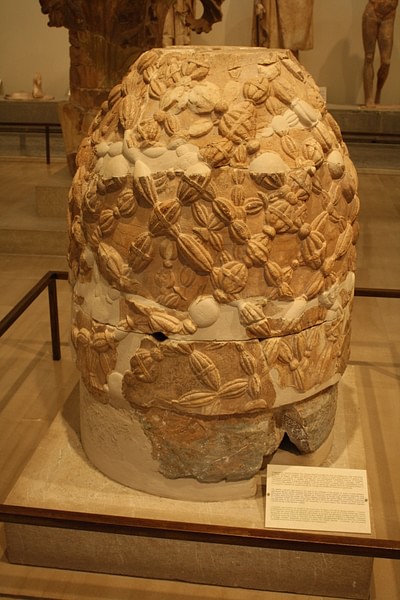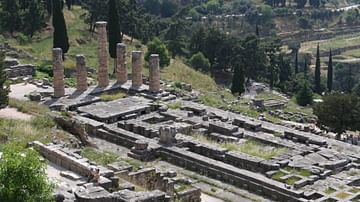
The Pythia (or Oracle of Delphi) was the priestess who held court at Pytho, the sanctuary of the Delphinians, a sanctuary dedicated to the Greek god Apollo. Pythia were highly regarded, for it was believed that she channeled prophecies from Apollo himself, while steeped in a dreamlike trance. Originally the god was channeled only once a year, but at the height of its popularity up to three Pythiai were known to hold office. The sanctuary at Delphi was constructed in the 8th century BCE, and the final prophecy given around 393 CE, after the Roman emperor Theodosius ordered the closure of all pagan sanctuaries.
A Pythia was chosen among the priestesses of the temple upon the death of the previous Pythia. Moral character was of utmost importance, and even if the newly-chosen Pythia was married and had a family, she had to relinquish all familial duties in order to fill her role in the temple. Pythias were likely women from higher-class families, were educated, and well-read.
The practice of interpreting the word of Apollo entailed that the Pythia bathe in the Castalian Spring, which was followed by the sacrifice of a goat. She then descended into a special chamber called an adyton beneath the temple which was fumigated with barley meal and laurel leaves on a burning hestia. There, at the temple center, the Omphalos, she sat on a covered tripod cauldron over a deep well-like chasm. Seated in this way, enveloped by vapors while shaking bay branches, the Pythia would fall into a trance state and channel the god. In this way did the Pythia pronounce judgment and prophecy to those in attendance. Those seeking the counsel of Apollo and his priestess would bring offerings of laurel branches, gifts of money, and a sacrifice of a black ram.

It is a Hellenic tradition that the Pythia entered her trance through the influence of volcanic fumes or hallucinogenic gases emerging from a crevice in the floor of the Castalian Spring. Although the sanctuary lies directly above two geological fault lines and the spring near the sanctuary contains ethylene, which can provoke hallucinations, there has been no conclusive determination on whether the trance states of the Pythiai were induced through exposure or was self-induced.





